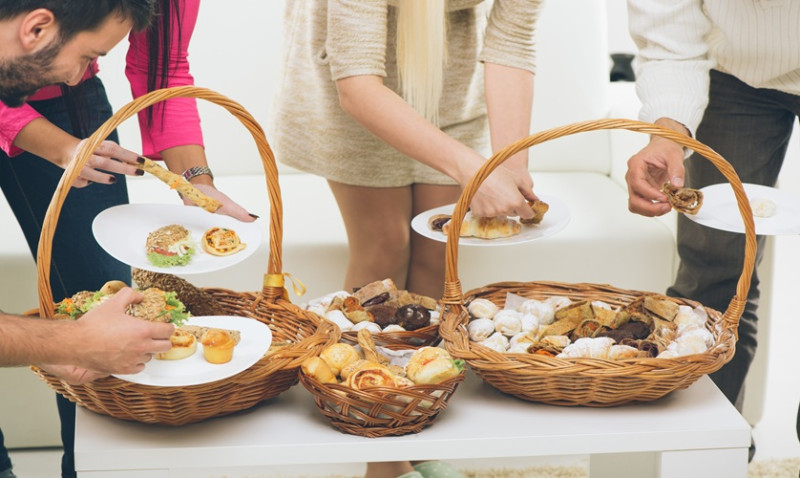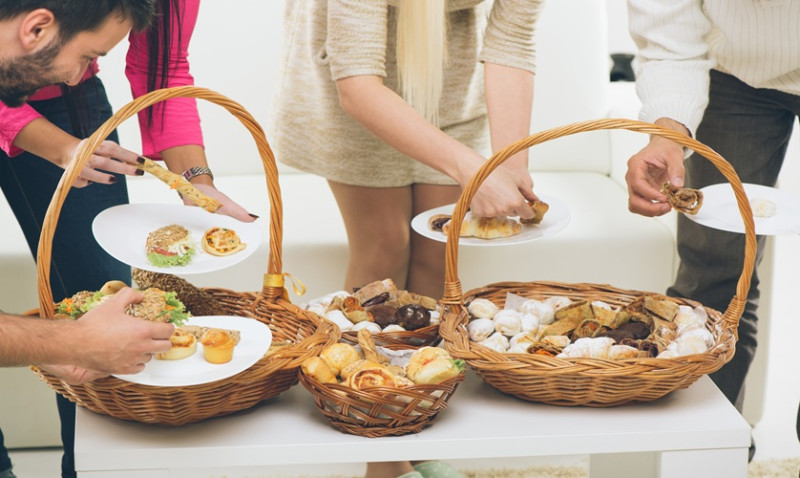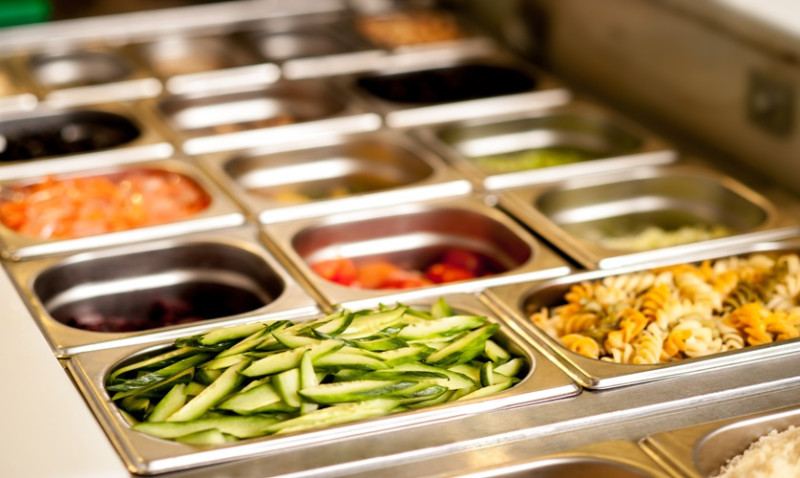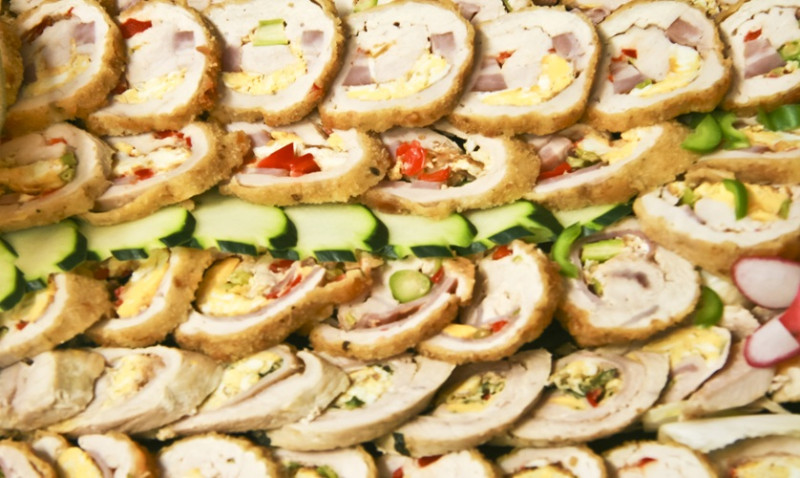
Hosting a catering event—whether it’s a private dinner party, a wedding reception, or a corporate function—comes with its fair share of challenges. But with the right planning and a few expert tips, you can turn any occasion into a seamless and unforgettable experience. Whether you're a seasoned professional, a DIY enthusiast diving into event planning, or a young professional looking to host something spectacular in your newly redecorated space, these three catering tips will guide you toward hosting success.
As catering experts know, the smallest details can make or break an event. It's not just about the food—it’s about creating an enjoyable atmosphere, smooth service, and an experience that reflects your style and care. Here are three essential tips to help you plan an event that not only meets expectations but exceeds them.
1. Know Your Audience and Tailor the Menu Accordingly
Before you even begin considering dishes or booking a caterer, take the time to truly understand who your guests are. Knowing your audience allows you to create a more meaningful and enjoyable event. Are you hosting vegan-conscious young professionals? Is your guest list filled with traditional family members who love classic British fare? Maybe you’re entertaining globally-savvy architects and designers who appreciate bold, culinary creativity.
This step is crucial for choosing the perfect menu. Not only should the food be delicious, but it should also reflect the tastes and dietary needs of your attendees. Offer diverse choices, including vegetarian, vegan, gluten-free, and allergen-aware options. In the UK, many guests are increasingly aware of healthy and sustainable ingredients, so taking this into account can enhance your credibility and guest satisfaction.
Consult with your caterer on flavour profiles, themes, and seasonal ingredients. Local sourcing is also becoming a key driver for menu planning—offering dishes crafted with produce from local British farms and suppliers can add that extra appeal.
You can also get creative here. Incorporate a build-your-own station for things like sliders, tacos, or even a DIY dessert bar. This works exceptionally well with younger and more interactive crowds, and gives guests something to talk about.
2. Presentation and Layout Matter—Design With Flow in Mind
After the menu, the way food is presented and how guests interact with it sets the tone for the entire experience. Food presentation is an art form, and especially if your event includes guests from design or architectural backgrounds, they will notice the details.
Think beyond the standard buffet—explore tablescapes that match your redecorated interiors or create visual harmony with the event’s overall theme. If you're hosting at home, use your existing décor as inspiration. Carefully selected servingware, coordinated napkins, and labeled dishes not only look great, but help guests identify what they’re eating.
The layout and flow of your event space also dramatically influence guest satisfaction. Ensure food and drink stations are positioned in a way that avoids crowding. Allow guests to move freely without bottlenecks forming around the kitchen or bar.
For larger events, consider setting up multiple smaller stations rather than one large central buffet. This encourages mingling and avoids queues—a particularly important consideration for professional gatherings where networking is key.
Proper lighting can also enhance both mood and food presentation. Use warm, ambient lighting to create a welcoming atmosphere that encourages guests to stay longer and enjoy themselves. For those in the DIY space or professionals who’ve recently updated their home or workspace—let that design effort reflect in your event’s layout.
3. Plan for the Unexpected with a Smart Event Checklist
No matter how meticulously you've planned, the unexpected can always pop up. A great host—or caterer—is always prepared with a contingency plan. Having a detailed checklist ensures nothing slips through the cracks, and you’re covered from start to finish.
Here’s a basic event day checklist that you can adapt for any UK-based catered event, whether you're hosting at home, a venue, or an office:
| Checklist Item | Details |
|---|---|
| Confirm Final Guest Count | Send reminders and confirm RSVP numbers 72 hours before the event |
| Verify Dietary Needs | Ensure the caterer has dietary restriction info (vegan, halal, nut allergies, etc.) |
| Double Check Equipment | Plates, glassware, serving utensils, linens—rent or check supply at least 2 days prior |
| Set Up a Trash and Recycling Plan | Ensure appropriate bins are available and easily accessed |
| Have a Backup Weather Plan | If outdoors, prepare marquees or indoor contingency |
| Assign a ‘Go-To’ Person | Designate someone to oversee logistics, especially if you’re also the host |
| Stock Up on Essentials | Everything from extra serviettes to toilet roll—prepare for overage, not minimums |
Taking control of these details early will decrease stress as the event day approaches. UK weather is notoriously unpredictable, so for outdoor summer events, backup tents or covered spaces are always a smart move. Likewise, electrical access (for lighting, music, heating, etc.) needs testing in advance—especially in older properties or restored homes.
If your event flows smoothly and guests feel well-fed, comfortable and impressed by the atmosphere, they’ll leave with lasting memories—and that’s the ultimate goal.
Conclusion: Impress with Organisation and Flair
Catering events, whether personal or professional, are an opportunity to express your taste, style, and attention to detail. For UK-based hosts—be they at-home renovators, tradespeople celebrating milestones, or designers impressing clients—bringing these tips into your planning approach guarantees an event that looks effortless, while being finely tuned behind the scenes.
Remember to tailor your menu to your guests, create a layout that invites flow and experience, and stay organised with a planning checklist that anticipates every detail and issue. By doing so, you ensure that your catering event is not just another party, but a reflection of your design sensibility, professionalism, and hospitality.
Happy hosting!






